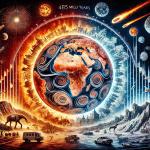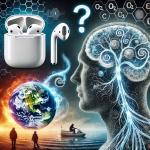In 1903, Marie Curie became the first woman to win a Nobel Prize (in experimental Physics). It took another sixty years for the second woman to become a Physics Nobel Laureate.
Other Science News
Now that I am four months or so into my Ozempic journey, it is time for an update. Let’s begin with the big goal: weight loss. As I might have predicted, the weight continues to be shed, albeit more slowly.
A decade or so ago, I got to take a tour of one of the Federal Reserve banks; in the vault, there was a massive brass balance that our guide told us could weigh up to 600 pounds of gold (or anything else) to a precision of the weight of a si
Turbulent flows are common, from large-scale atmospheric and ocean currents to microscopic bacteria suspensions.
With 12,000 known species, incredible strength, a range of habitats that rivals ours, and a very socialized, although hierarchal organization, ants are spectacular despite their diminutive size.
Recently, the New York Times published “How Wildfire Smoke Threatens Health,” for which the theme was ‘’understanding how the airborne remnants of blazes
Amid the news this week from Apple, there was a significant change in their Airpods.
Lars kicked things off by mentioning former presidential candidate RFK Jr., who has achieved a small following with his unhinged anti-vaccine views.
Perhaps guinea pig is too strong a choice; I was a volunteer in a research study – I am afraid I learned more than the researchers.
I grew up with Disneyland and remember going there as a child and having taken my 1-year-old son and, most recently, my 3-year-old grandson to the park and walking down Mainstreet, which has not changed in 60 some years, although I have.












